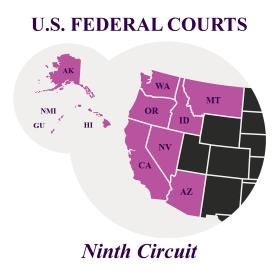Once a lawsuit has been filed, standing is often the first issue that defense counsel will address. After all, if standing opens the door to the merits of a suit, then counsel is generally tempted to keep that door shut and locked. A recent case reminds us that standing is always an issue, even when counsel does not argue against it, and a court may not hesitate to lock the door itself.
In Hebert v. Barnes & Noble, No. 19-cv-591-BEN (JLB), 2020 U.S. Dist. LEXIS 123325, at *11 (S.D. Cal. July 13, 2020), the court remanded a case to state court at the summary judgment stage after sua sponte finding against standing on the basis that the plaintiff did not allege any actual harm. At issue was the sufficiency of a FCRA disclosure provided by Barnes & Noble to job applicants. If an employer wants to obtain a consumer report to screen a prospective employee, then the FCRA requires that employer to provide applicants with a FCRA disclosure in a document containing nothing other than the disclosure itself. The plaintiff here claimed that between 2016 and 2018, Barnes & Noble provided defective FCRA disclosures to 27,000 job applicants. Despite the large number of applicants that received the allegedly defective disclosures, Barnes & Noble did not receive any complaints, including from the plaintiff, who eventually accepted a job offer from it.
Although the defendant never made the argument, the Hebert court found that the plaintiff lacked standing due to her failure to allege actual harm. To make this point, the court cited a recent case, Sierra Club v. Trump, 2020 WL 3478900, at *6 & n.9 (9th Cir. June 26, 2020), to state that “[a] federal court has an independent obligation to satisfy itself that a plaintiff has standing at all stages of litigation.”
To address the strength of the plaintiff’s allegations, the Hebert court looked to Syed v. M-I, 853 F.3d 492, n.4 (9th Cir. 2017) and contrasted it against this case. Syed was a case of first impression that interpreted Spokeo, Inc. v. Robins, 136 S. Ct. 1540, 1550 (2016) to state, “bare technical violations of the FCRA may not result in a concrete injury.” In Syed, the plaintiff alleged that he was “confused by the inclusion of the liability waiver with the [FCRA] disclosure and would not have signed it had it contained a sufficiently clear disclosure, as required in the statute.” The court found that this was a sufficient allegation of actual harm and not only a “bare procedural violation,” which would not pass muster under its interpretation of Spokeo.
In contrast, the Hebert court found that its plaintiff did not allege harm. The court noted that the plaintiff neither alleged confusion nor an unwillingness to consent to a consumer report had she “clearly understood the required FCRA disclosure.” The court went on to note that the situation was “[q]uite the opposite” – the plaintiff wanted a job, she understood that it required a background screening, she consented to the consumer report, and ultimately went on to obtain a job with Barnes & Noble.
Between its lines, Hebert has two takeaways. First, Sierra Club has highlighted a court’s ability to examine standing regardless of whether the issue has been briefed or how far the litigation has proceeded. The Hebert defendant never disputed standing and the court brought it up at the summary judgment stage. Second, even if a defendant finds itself pleased with the court evaluating standing sua sponte, the elation should be tempered. Hebert did not dismiss the case, but rather remanded it back to the state trial court where it started for further consideration.




 i
i


